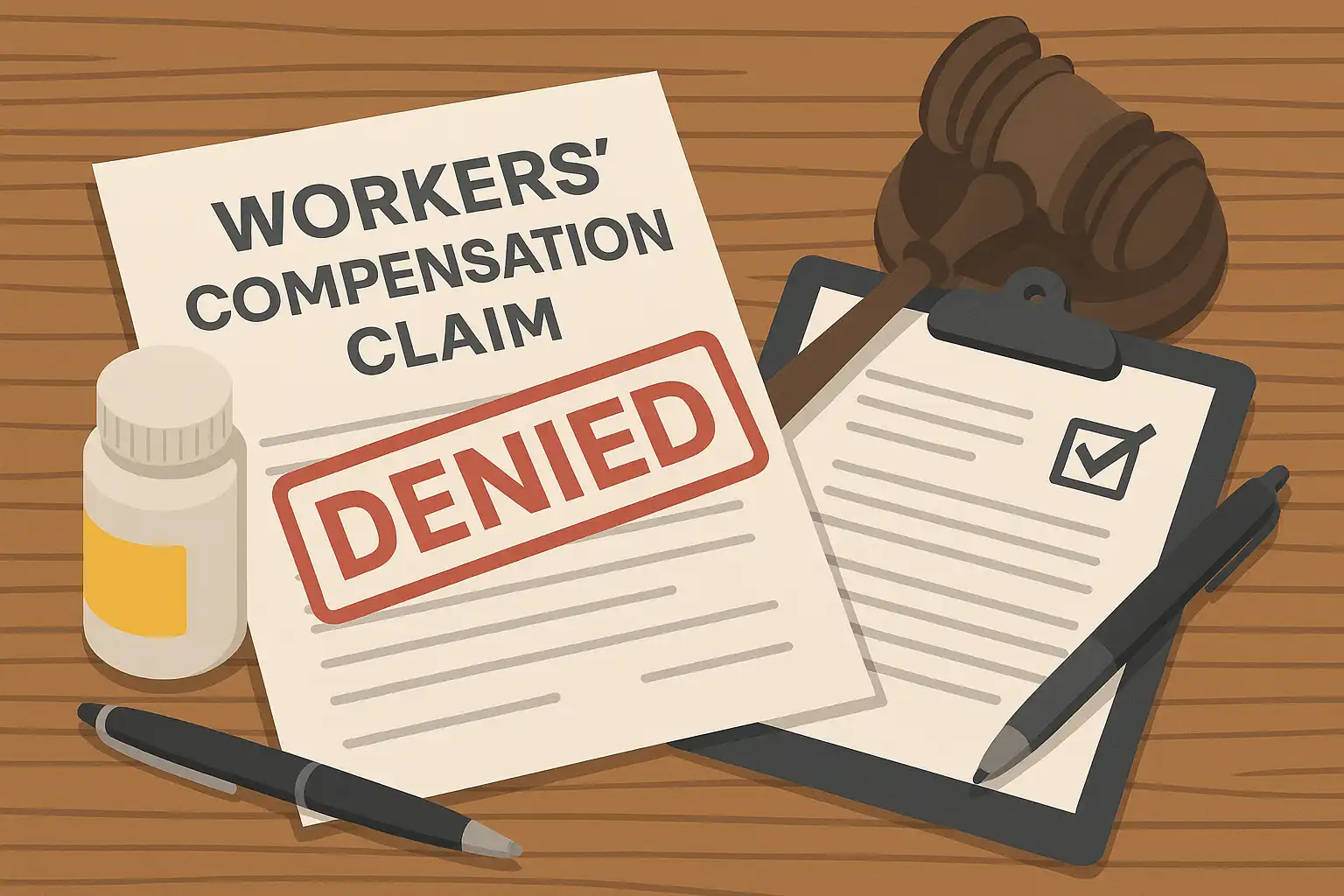Available 24/7
Se Habla Español
Free Case Evaluation
Evaluación gratuita de caso
(919) 438-0065

Having your workers’ compensation claim denied can feel overwhelming, especially when you are recovering from a workplace injury, facing medical bills, and uncertain about how to move forward. In North Carolina you have options. This page explains the denial process, your appeal rights, your chances of winning a workers’ comp appeal, and whether you can sue your employer. At Paul Robinson Law we help clients in Raleigh, Cary, Durham, and the surrounding Triangle area navigate these challenges and protect their rights.
Before you can respond, it is crucial to understand why your claim was denied. Common reasons include:
These reasons are frequently cited in denial letters and must be addressed in any appeal.
Learn How Long it Takes to Settle a Workers' Compensation Case >>
Review the denial letter carefully. Confirm exactly what reason the insurer or employer gave for denying your claim. It will often reference specific grounds.
Preserve all records. Keep the denial letter, medical records, wage statements, witness statements, emails/texts about the injury, and employer safety reports.
Seek legal advice early. A workers’ comp denial case can turn into a formal hearing. Having an attorney early often improves your chances.
Consider your appeal timeline. Although the exact deadline may vary, you will need to act promptly, filing a formal hearing request (Form 33) is the first major step.
To make an appeal, you must file Form 33, “Request That Claim Be Assigned for Hearing” with the North Carolina Industrial Commission (NCIC). Filing the form initiates the formal appeal process, which typically begins with mediation.
Often the next step is mediation, an informal conference between you, the employer/insurer, and a mediator to try to resolve the dispute without a full hearing.
If mediation does not resolve the issue, a hearing before a Deputy Commissioner of the NCIC will take place. You’ll present evidence, doctors may testify, and you’ll have to show work‑relatedness, timely reporting, and causation.
If the hearing decision is adverse, you may appeal to:
While past outcomes never guarantee future results, you increase your odds by:
Insurers often deny claims at first; many valid claims succeed on appeal with strong evidence and legal representation.
Under North Carolina law, most employers are required to carry workers’ compensation insurance. If your employer refuses to file a claim or tries to deny your status as an employee, you may have additional legal paths:
Report the refusal to the NCIC. You may have a separate cause of action if the employer acted willfully or breached legal obligations.
Note: You cannot usually sue your employer for negligence if the workers’ compensation system covers you, but you may pursue third‑party claims (if someone other than your employer caused your injury).
Ensuring your employer carries coverage and has properly reported your claim is crucial.
At Paul Robinson Law we bring local experience in Raleigh, Cary, Apex, Clayton and Durham to workers’ compensation denial cases. We assist by:
You’ll get a denial letter. You still have the right to appeal and may still obtain benefits by filing Form 33 and proceeding through NCIC mediation/hearing.
You should act immediately. While Form 33 can often be filed within 2 years of injury, waiting reduces your chance of success and evidence may fade.
In most cases the workers’ comp system is your exclusive remedy as an employee. However, if your employer intentionally failed to carry insurance or a third‑party caused your injury, other claims may exist.
Avoid downplaying your injury, admitting you weren’t hurt badly, failing to follow doctor’s orders, or making inconsistent statements. These can weaken your appeal.
Exact percentages vary. However, many valid claims are denied at first and succeed on appeal when properly handled with documentation and legal help.
Call Us At
919-438-0065
105 S Ellington St, Clayton, NC 27520
124 St Marys St Ste 201, Raleigh, NC 27605
800 W Williams St #250 Apex, NC 27502
Clayton Office:
Phone : 919-438-0065
Raleigh Office:
Phone : 919-471-3200
Apex Office:
Phone : (919) 944-4630
105 S Ellington St, Clayton, NC 27520
124 St Marys St Ste 201, Raleigh, NC 27605
800 W Williams St #250 Apex, NC 27502
Copyright @2026 The Law Offices Of Paul Robinson. All Rights Reserved.
This site is for information purposes only. No attorney-client relationship is created by use of this site. No legal advice is intended by its use. An attorney-client relationship is only created speaking to an attorney and signing a representation agreement.
By providing your phone number, you agree to receive text messages from Paul Robinson Law, PLLC. Message and data rates may apply. Message frequency varies.

